Donna Andrews, Co-Lead Ambassador
My name is Donna. I am a master’s student with the Department of Social Work and a long-term member of the UNBC community. I am a Western European English-speaking settler born and raised on the unceded territory of the Lheidli T’enneh
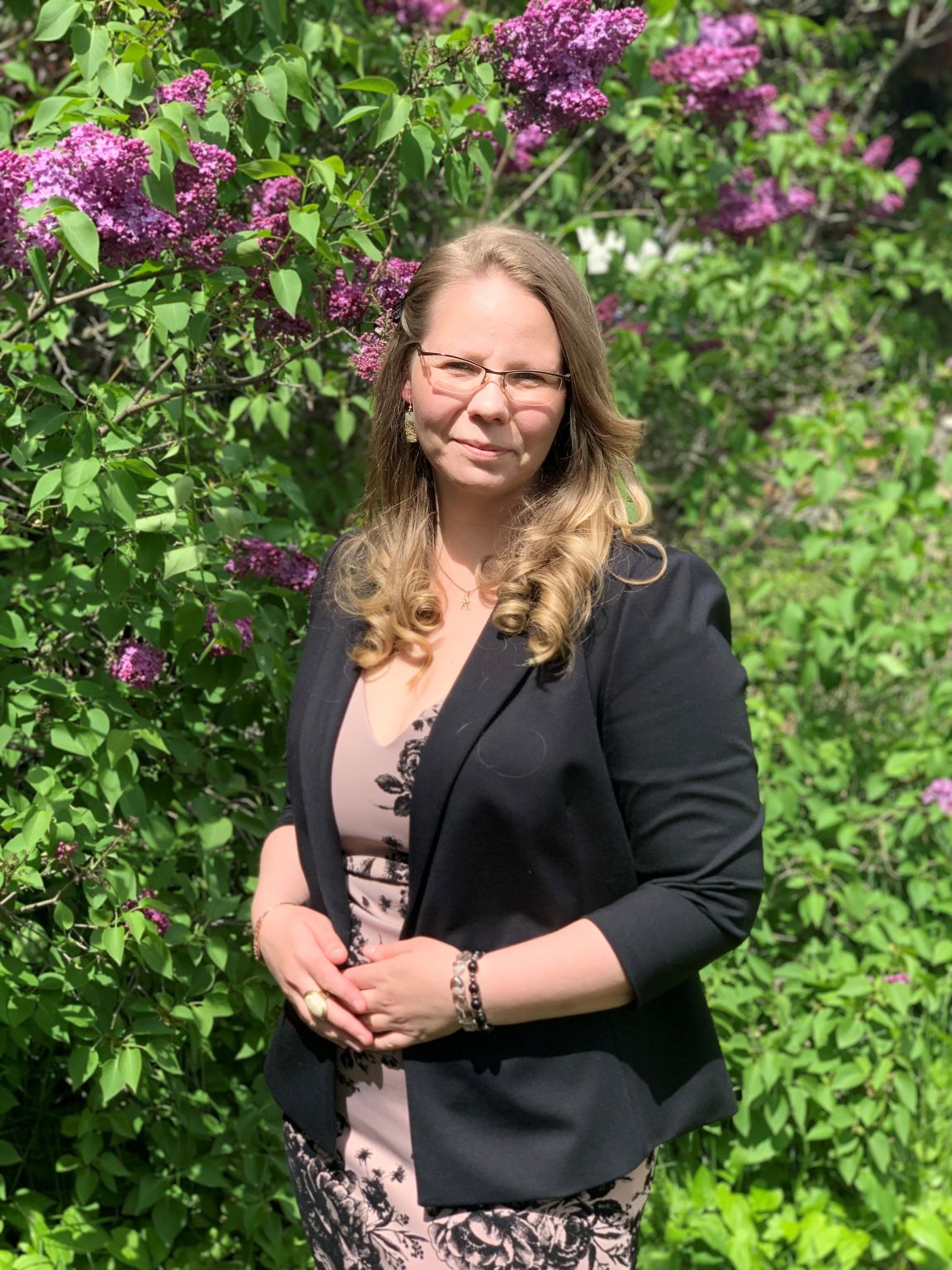
here in Prince George, British Columbia. I hold an undergraduate degree in English literature from UNBC and worked as an English language instructor with UNBC’s International Studies department for nearly a decade. I see myself as a life-long student and am so grateful to have such a fantastic university in my own backyard.
My journey to research has been driven by my life experiences. As a mother of four, I have had my share of challenges that have shaped my ongoing passion for research and information sharing. Being part of a community of women who value evidence-based practice and promotion has given me opportunities to seek out research in both academic and community settings and see its value from the ground up. My current research is focused on new mothers and their experiences of COVID-19 isolation as it relates to personal well-being and access to supports.
UNBC has been the perfect environment for exploring my research passions and getting involved in local projects. UNBC prides itself on community research. The opportunities for learning about the work being done by students, staff and faculty on campus are abundant as weekly presentation series and research week events are always offered. I chose UNBC because it was close to home, but I stayed because I fell in love with the passionate research and community-minded culture that the university boasts. I transferred into UNBC in my 3rd year, and I felt I missed out on a lot of the opportunities available to undergrad students because I did not know where to look, and I was afraid to ask. In my time as an instructor, my eyes were opened to all the amazing work being done, and I hope to be a part of sharing that work with incoming and veteran students today. Research is for everyone, and it is my hope that we can share our passion with you.
Joe Bottoms, Co-Lead Ambassador
My name is Joe Bottoms. I am a third-year grad student earning my PhD in Natural Resources and Environmental Studies. During my time in UNBC’s Freshwater Fish Ecology Lab, I’ve been researching how changing landscapes impact migratory
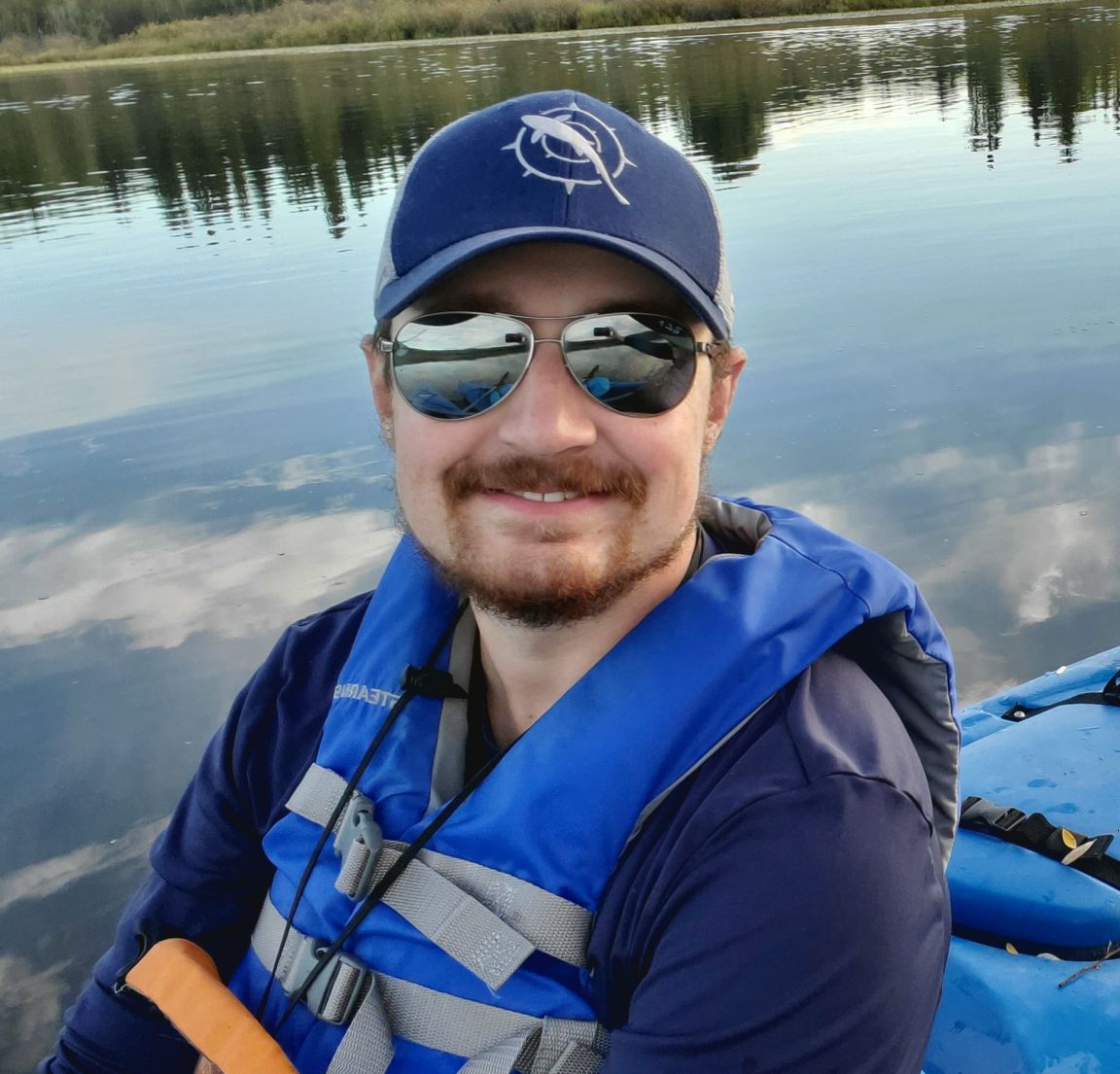
species of salmonids. Since temperature controls pretty much everything from the times that fish are active to how quickly they grow, I’ve been focused lately on how fish interact with their thermal environments (and how these environments are connected) as they move along their migration routes.
For me, research is an opportunity to dive down the rabbit hole of a question I’m interested in without ever having to work the same day twice (my first job was in a factory). As a backcountry field ecologist in particular, the diversity of skills needed to answer a research question extend far beyond strong writing skills and academic discipline. In the past year alone I’ve had to use and develop skills in carpentry, electrical work, programming, jetboating, fly fishing, wilderness first aid, and live fish surgery – just to name a few. Research has impacted my life by providing direction to my predisposition for learning new skills and tinkering to solve problems. It’s simply a perk of the job that in doing so we create even more questions which of course in turn need answering. In the immortal words of Adam Savage: “the only difference between screwing around and science… is writing it down”.
I chose to study at UNBC because it’s both a strong research university and a relatively small school. What surprised me when I came here is how accessible research is to the undergraduate student body. When I reflect on it, perhaps I shouldn’t have been surprised; I personally didn’t get involved in research as an undergraduate until I had the opportunity to form a relationship with a professor – something that can both be difficult at larger schools and that UNBC’s small population encourages. Out of this also comes interdisciplinary perspectives on the problems we approach, which has benefited my work in surprising and unexpected ways. It’s like I said above – the diversity of skills needed to answer a question extend far beyond any one person’s expertise.
Nahid Hassanshahi
Hello everyone, my name is Nahid Hassanshahi. I am a PhD candidate in Natural Resources and Environmental Studies at UNBC. I started my PhD studies at UNBC in May 2019. I achieved my bachelor degree in Water Engineering in my home
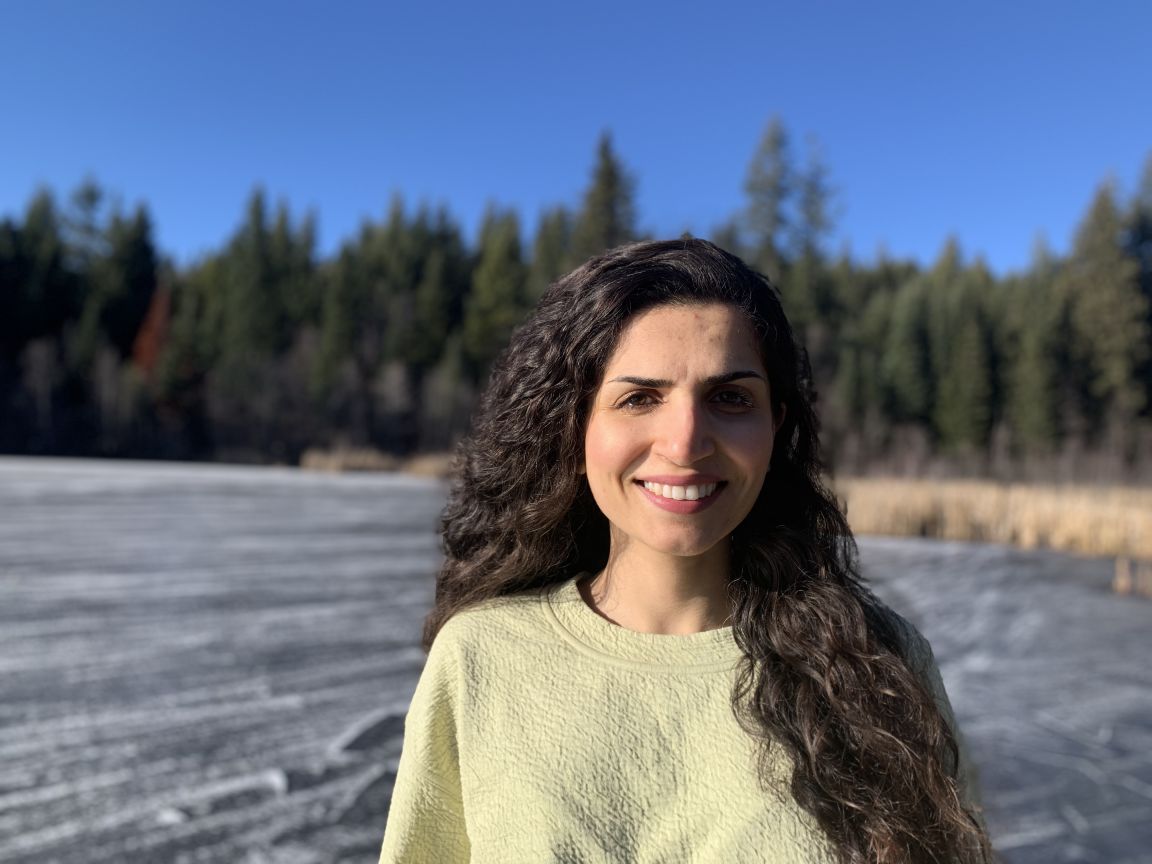
country of Iran. During this time, I discovered I have passion in environmental studies and dealing with environmental issues. As a result, I changed my major to Environmental Engineering for my Master’s studies and continued this field of research to a PhD level. Environment means air, water, and soil, and our life highly depends on the quality of them. Obviously, it is essential to protect our environment. The most reliable approach to find the best strategy to protect our environment is conducting research. I have gained valuable experiences in working on different research projects dealing with environmental issues, including wastewater treatment, solid waste management, and air pollution control, which have shaped my abilities and skills as an environmental expert. My PhD research study is focused on treatment of oily wastewaters generated in oceans due to oil spills, the outcome of which will be one possible step to protect the marine environment.
From my point of view, research is like a remarkable KEY to open locked doors, and curiosity is one of the main features of a researcher. This allows us to find those locked doors by asking different questions. Research helps researchers to develop their critical thinking, improve their skills and abilities, and to answer important questions.
I chose UNBC to do my research because it offered me the opportunity of working on a major Oil Spill Response project, which is supported by Fisheries and Oceans Canada and the Multi Partner Research Initiative in Canada. It was absolutely an incredible offer to me as a researcher, but this is only the first part of the story! UNBC surprised me because, although it is a small university, it ranks among the best small universities in Canada. Not only is UNBC equipped with different research laboratories, it provides many different facilities to support students’ demands and requirements through different academic centers and clubs. UNBC engages students by organizing useful workshops and events where students can improve their abilities and skills. UNBC goes beyond my expectations by offering many different research funds and research projects for undergraduate and graduate students annually, where researchers gain valuable experiences. These golden research projects can be conducted at different advanced research laboratories, which all incorporate to support interdisciplinary research at UNBC. Wow! I am a researcher and yes, I am in the right place! If you are excited, the same as I am, by these wonderful opportunities and would like to know more about them, please feel free to reach out me. We can go around on Campus, have fun, and discuss more.
Erin McPhail
Hi everyone, my name is Erin and I just commenced my first year of graduate study at UNBC. I am currently studying remotely from Byron Bay, Australia and am so looking forward to meeting you all in-person for the Winter Semester! As a Master of
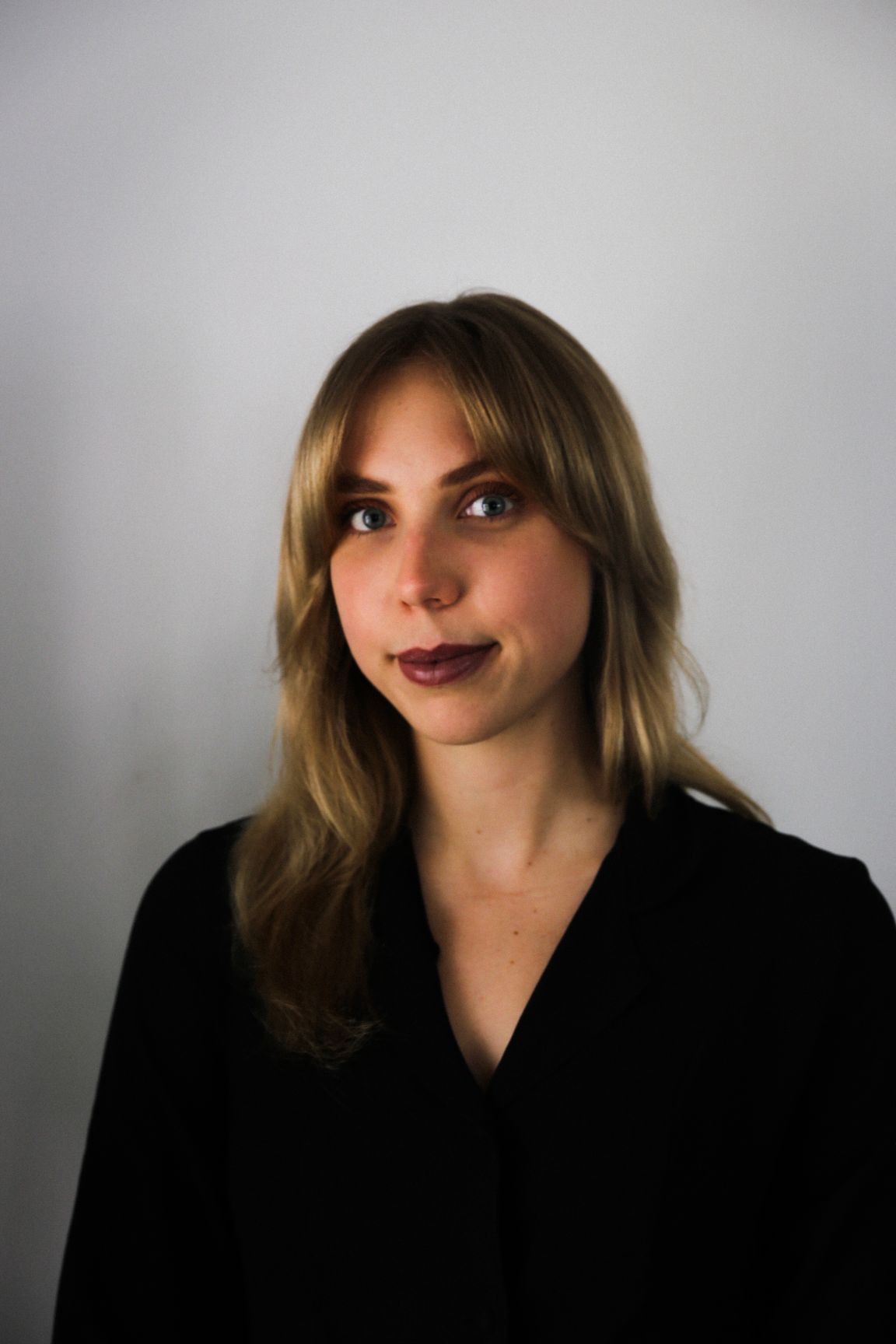
Arts in International Studies student, I am undertaking research as a part of a thesis-based program within the Department of Global and International Studies and Department of Economics.
During my undergraduate studies, I completed a double Bachelor’s degree of Health Science (Paramedics) and Nursing, and a Bachelor of Environmental Management (minor in Sustainability). My passion for research emerged through volunteer and paid opportunities throughout my undergrad. As a Research Assistant with the Sustainability Research Centre and member of the Environmental Change Research Group, I gained experience applying technical skills to research focused on the use of Indigenous Knowledge in climate change adaptation with Dr. Tristan Pearce. Undertaking fieldwork expeditions to Borneo and Malaysia, I applied skills in plant identification, measurements and data entry for a longitudinal study with the University of the Sunshine Coast (Australia) and the Kuala Belalong Field Studies Centre.
As an M.A. INTS student at UNBC, I am undertaking research that examines how COVID-19 is interacting with multiple stressors, such as climate change, to affect the food security of Indigenous Peoples. Working directly with marginalised populations disproportionately impacted by environmental change has unquestionably influenced my desire to conduct my own original research on how these stressors influence social determinants of health.
UNBC’s strategic research objectives and commitment to equity and diversity were central to my decision on where to undertake my graduate research. Moreover, generous funding awards and world-class research opportunities made UNBC my preferred choice as an international student. I am continually surprised by how accommodating UNBC has been to my remote learning needs and the ongoing support and hospitality shown by research staff continues to exceed my expectations. I look forward to meeting you soon and if you see me around, I hope you stop and say “G’day!” I would love to chat with you about the opportunities research can provide at UNBC, and if you have any tips on staying warm throughout a Canadian winter then I would love to hear those too!
Annie Pumphrey
Arts or sciences…why not both? I’m Annie—and it took me great deal of what I call ‘academic exploration’ before finding my footing in post-secondary education—leading me to become an advocate for interdisciplinary studies. I graduated with a BA
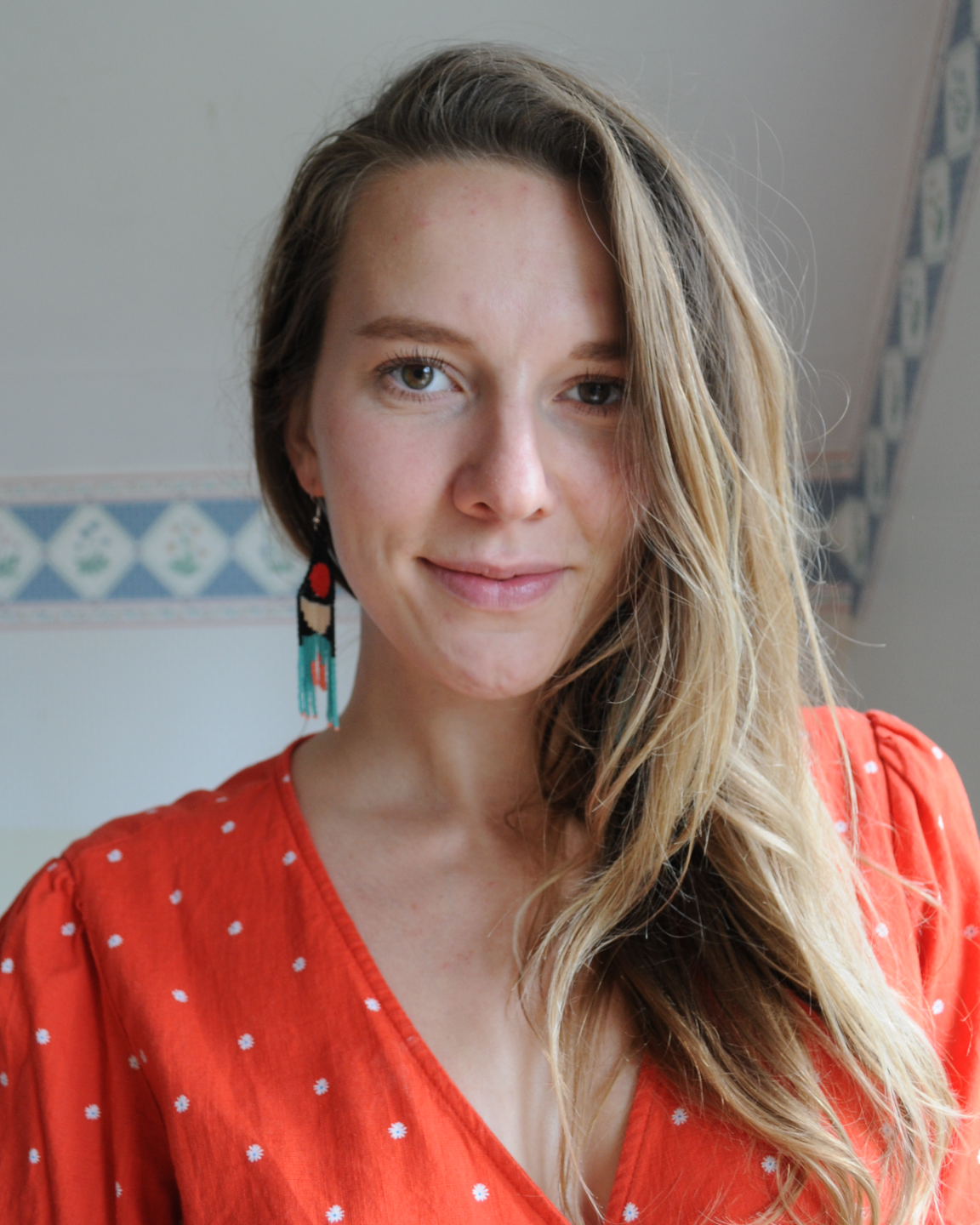
in Political Sciences from the University of Alberta (I switched majors from Drama to Human Ecology to English before that). Serendipitously during an undergraduate class, I discovered my love for parks and protected areas, and spent the following five years working in a variety of different roles for Alberta Parks, BC Parks, Parks Canada, and the Department of Conservation (New Zealand).
Through my work in Kananaskis Country, I gained an interest in the challenges of human-wildlife interactions and decided to go back to school to delve deeper into the issue. I chose the Master of Natural Resources and Environmental Studies (MNRES) program at UNBC for its unique interdisciplinary approach to natural resource and environmental research, and for the expertise and experiences of past alumni and current faculty.
For my thesis, I am researching perceptions of roadside bear viewing and related risks (for both humans and bears) in Peter Lougheed Provincial Park, Alberta. I am interested in how visitors, local people, and other experts experience and understand roadside bear viewing. My interdisciplinary research aims to add visitor data and expert perspectives, as well as patterns within and between these to inform a more balanced approach to bear management.
I think celebrating the unique and layered backgrounds of students and how they bring together multitudes of disciplines into their research is an exciting and engaging aspect of research at UNBC. I am always happy to meet with students and help in sharing research in accessible and digestible ways.
Students and faculty at UNBC are a ~sparkly~ example of how sciences and arts can go hand-in-hand!
Julian Stokes
Hello everyone! My name is Julian Stokes. I was born and raised in New Hazelton, BC, and I moved to Prince George in 2017 to pursue my BHSc Honours degree here at UNBC. Now, I am excited to be starting my MSc in Health Sciences under
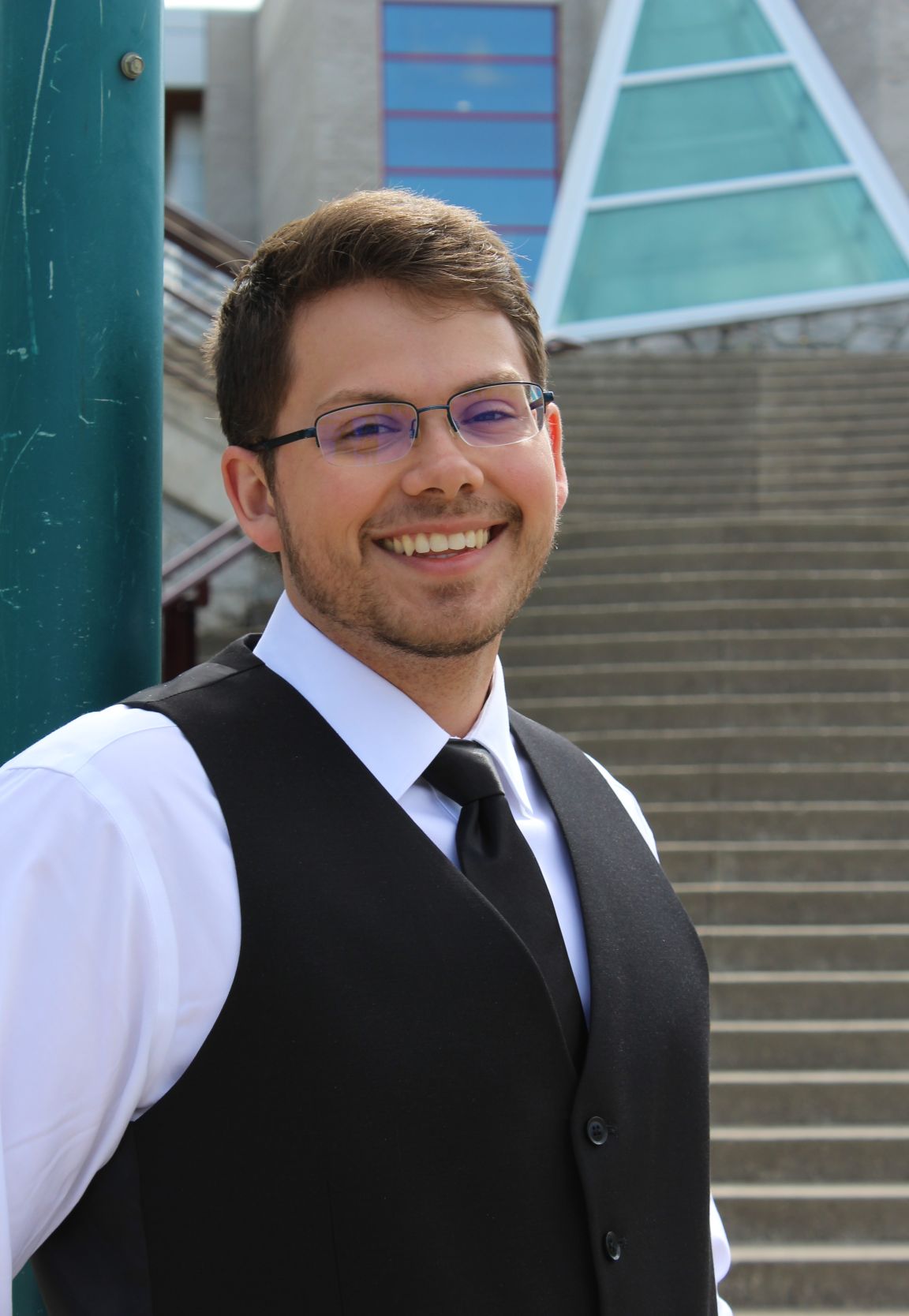
the joint supervision of Dr. Luke Harris and Dr. Tammy Klassen-Ross. My currently planned master’s thesis will use near-infrared spectroscopy to investigate the relationship between meditation and pain tolerance in relation to the possible role of this cognitive practice as a chronic pain management technique.
My current research is a progression of my earlier research experiences at UNBC, which have been centred in the Northern BC Near-Infrared Spectroscopy Research Laboratory (NBC NIRS Lab). Beginning with a URE in 2020 and continuing with my honours thesis the following semesters, I have had the opportunity to explore applications of NIRS in investigating human brain, muscle, and bone tissues.
I first chose UNBC for my undergraduate degree due to it being a top-rated small university that was conveniently close to my hometown. Since then, I have been continually amazed by the readily accessible opportunities, mentorship, and sense of community at UNBC. Having had the opportunity to experience life, classes, and research as part of the UNBC community, it was the natural choice to further my education here.
Research was an irreplaceable part of my undergraduate experience, and my only regret is that I didn’t get involved sooner! Research at UNBC has been an incredible learning experience that has helped me expand my horizons and feel as though my work is making a meaningful contribution. I look forward to working with you as one of UNBC’s Research Ambassadors.